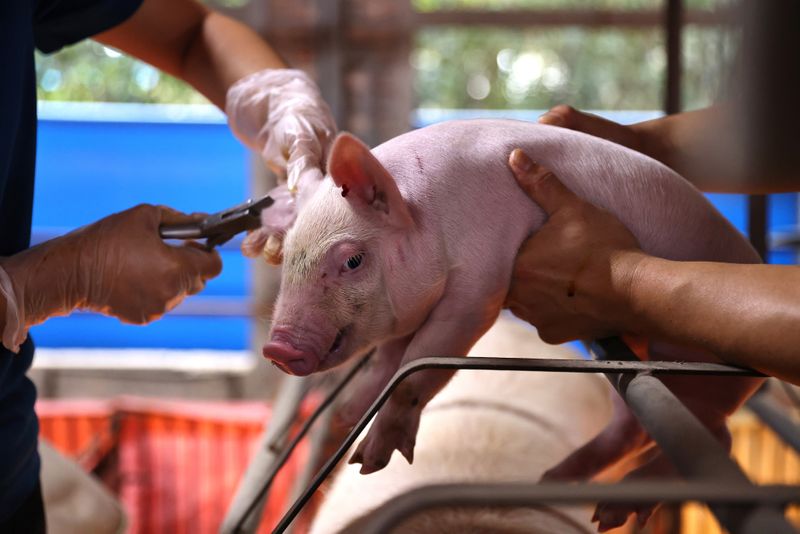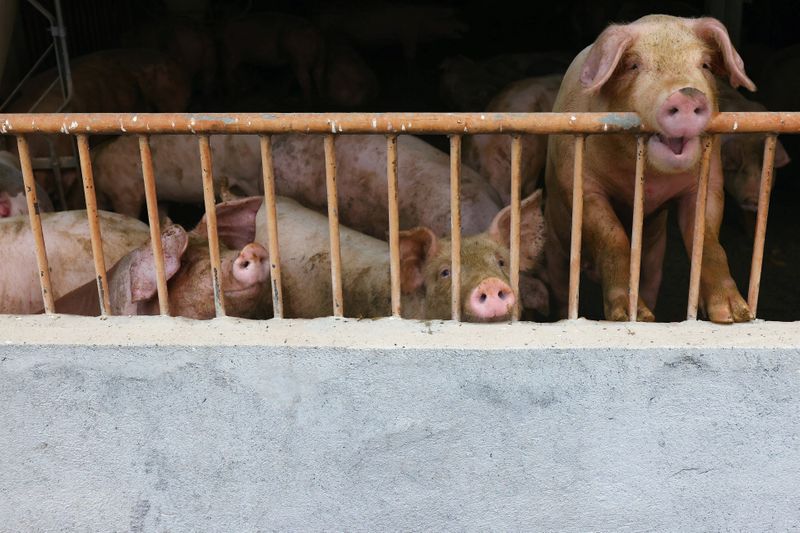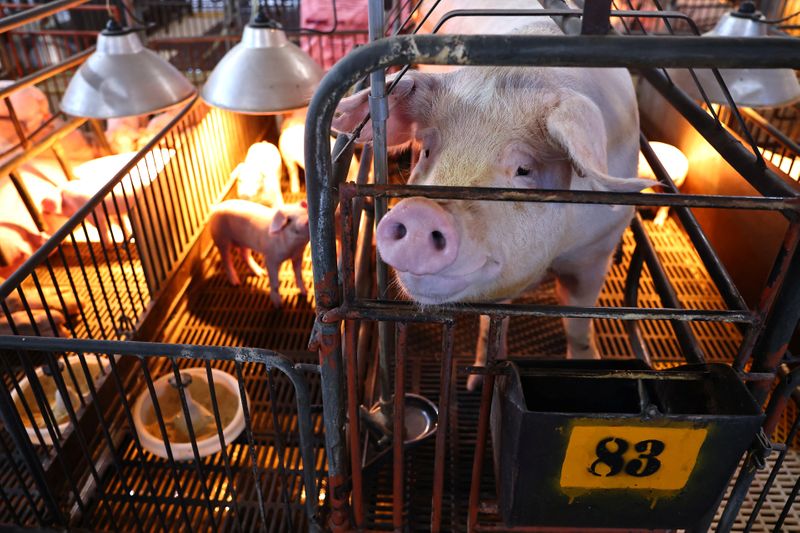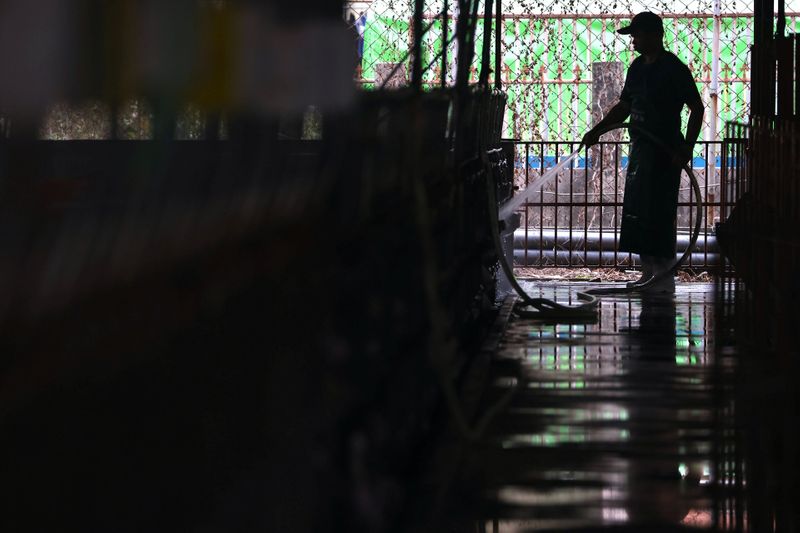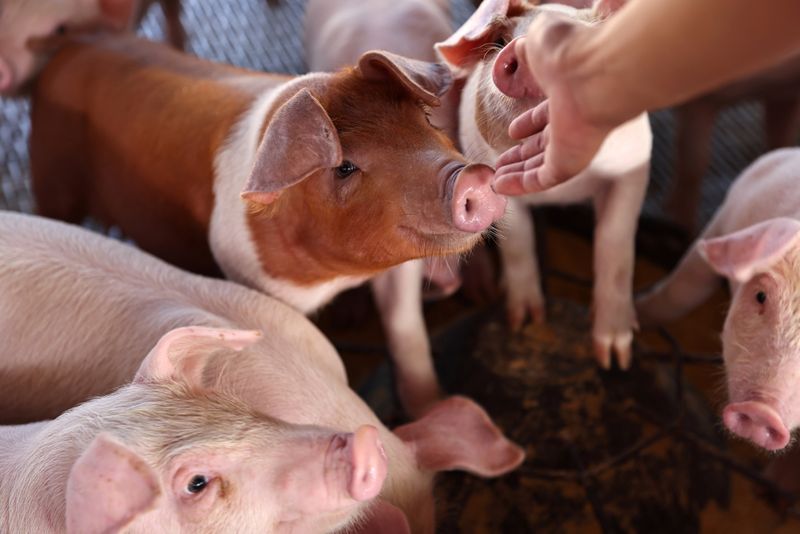PINGTUNG, Taiwan (Reuters) – In southern Taiwan’s pig-producing heartland, the government’s contentious decision to ease restrictions on imports of U.S. pork is rankling some producers and dividing families.
President Tsai Ing-wen’s decision in August to allow imports of U.S. pork containing ractopamine, an additive that enhances leanness but is banned in the European Union and China, has roiled Taiwan politics.
In Taiwan’s southernmost county of Pingtung, a major pork-producing area, pig farmer Wu Jung-en, 63, said he was “furious and shocked” when he heard the news.
“I’m quite worried this will make people fear pork, so maybe they won’t eat it anymore. It’s a terrible thing for us,” Wu, who has a heard of about 10,000 hogs, told Reuters.
His 32-year-old son Wu Hung-chi, however, doesn’t see it that way.
“I’ve told my friends that if they’re scared, then go and buy warm-body pork,” said the younger Wu, referring to meat that is eaten shortly after slaughter, rather than frozen.
“It’s a free market. If it’s no good it will be phased out. Nobody is forcing you to eat it.”
That’s an argument the government makes, and says its decision brings Taiwan into line with international practice. Taipei is also hoping the move eases the way for a free trade deal with Washington.
The main opposition Kuomintang party opposes the move on safety grounds, holding noisy protests and flinging pig guts in parliament on one occasion.
Pork is Taiwan’s most popular meat, with the average person consuming almost 40 kg annually.
Most pork consumed in Taiwan is domestically-reared, with only around 1% currently coming from the United States.
Teng Hung-chao, a pork farmer for more than three decades who runs an agricultural sales cooperative in Pingtung, said he too was angered by the move, fearing the impact at home.
“The United States is a major pork producer that is quite competitive, so imports will be cost effective. But it can’t be forced on us, bringing chaos to our industry and taking it down.”
(Reporting by Ann Wang; Writing by Ben Blanchard; Editing by Lincoln Feast.)

